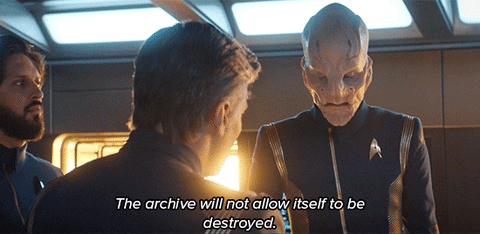First, this week’s Mic Drop is a little self-promotion. Observer’s Brandon Katz interviewed me this week for a piece about Netflix’s strategy to evolve towards Disney’s model. It is something they have been talking about in the press, and in earnings calls.
But are they progressing towards that objective, or not?
Brandon pulls the data, and I contextualize what I have been seeing and hearing in earnings. It’s a fun read that hopefully provokes you to see Netflix in a different light - not negative, not positive, just from a different perspective.
Also, the seed of the story came from a conversation that started with this tweet:


Netflix & Sony
Two weeks ago, Netflix announced a deal with Sony for the Pay 1 window of Sony theatrical releases. Notably, after mentions of it was the only mention of in this week’s earnings call there was only one mention of “IP”:
Nidhi Gupta -- Fidelity Investments -- Portfolio Manager
Can you share any more details about the -- the Sony deal? You know, what -- I guess more specifically what is the rationale for the deal and what does it get you that your originals obviously don't achieve for you?
Ted Sarandos -- Co-Chief Executive Officer and Chief Content Officer
Yeah. Well, what's really exciting about that deal is that we're going to be producing global original films from Sony's IP library and their development slate for Netflix. That's really an incredible opportunity of access -- access to IP that we wouldn't otherwise have. And it's part of, you know, it's a big global programming strategy over the next five years.
The domestic pay-one deal is also part of that. I think complements and adds to it but only for our domestic subscribers over the four-five years. And we do think that that's a great thing and it complements our -- our growing output of original film as well. And we've had their output prior and through other deals over the last several years.
It's been great. They're great films. People have a diverse taste like I said and I think this adds to that, doesn't compete with that.
One thing to flag on the topic of IP is Sarandos’s like “what's really exciting about that deal is that we're going to be producing global original films from Sony's IP library and their development slate for Netflix”. One fun but little discussed advantage is the deal gives Netflix access to Sony’s Playstation IP:

For Sony, the deal is a lucrative five-year licensing deal. For Netflix, it could be game-changer in its tactics to become more like a Disney. Third-party IP helps.
The problem is, Netflix will not own Sony IP like Disney owns LucasFilm, Pixar, and Marvel. That is a reflection of Sony Pictures Entertainment pursuing an “arms dealer” model instead of an outright sale of its business.
Sony & Disney
I had wondered on Twitter why Sony had not made a deal with Disney for the Pay 1 rights given that Disney needs more content for its recently launched Star and Star+ services, and also for Hulu. The answer: because Sony was negotiating with Disney for subsequent TV windows after Pay 1. Per Variety’s Cynthia Littleton:
The Disney deal covers subsequent TV windows, meaning that the titles will land on Netflix first, about nine months after the start of a film’s theatrical run. Disney is scooping up for multiple platforms the windows previously reserved for ad-supported cable and broadcast airings of movies. The Netflix and Disney deals also run for the same license term.
Keith Le Goy, president of worldwide distribution and networks for Sony Pictures Entertainment, is quoted in the piece describing their “arms dealer” strategy:
“This agreement cements a key piece of our film distribution strategy, which is to maximize the value of each of our films, by making them available to consumers across all windows with a wide range of key partners.”
Sony sees more value in maximizing the distribution of its movies and library across as many platforms as possible, and less value in being acquired. It also sees little to no value in keeping its library and monetizing it with a new AVOD or SVOD.
Sony & ViacomCBS
The logical question from that last point is the title of this post: “Is Sony Pursuing My Recommended Strategy for Paramount+?”
That recommendation was in another piece from Observer’s Brandon Katz, “Paramount+ Mobilizes Against Netflix, But Can It Compete?:
“Sports plus breaking news plus kids plus Pluto is a business,” Rosen surmised. “Everything else they’re better off selling to Netflix.”
Meaning, Paramount+ would be better off doubling down on its own “arms dealer” model - which has seen originals like Yellowstone succeed on Peacock and South Park go to HBO Max.
Sony is clearly pursuing the “selling to Netflix” part of my recommendation, though with a more sophisticated approach:
Splitting up post-theatrical distribution windows and selling those licensing rights to logical buyers like Netflix and Disney
For direct-to-streaming, locking up first-look agreements with Netflix but not being stuck in exclusivity (unlike WarnerMedia and Disney)
Separate deals for domestic U.S. rights and for international rights
Why can’t ViacomCBS mirror this strategy with its entire content library, and focus instead on “Sports plus breaking news plus kids plus Pluto”?
The Short Answer: Advertisers
The absurdly simple answer for why not is advertising: advertisers paid ViacomCBS $3.145B in 2020 in their non-streaming businesses. These advertising revenues constitute 46% of ViacomCBS’s total revenues, and at an operating margin that falls somewhere between TV Entertainment (17%) and Cable Networks (29%), and advertising revenues fall within both.
ViacomCBS’s annual report does not break down how $3.145B in advertising revenue is distributed across news, sports, kids, and original content (the $3.145B comes from their Streaming Day Investor Presentation). Regardless, the obvious takeaway is: advertisers will continue to pay to have their brands next to ViacomCBS’s content.
I think ViacomCBS could pull off similar deals with their TV Entertainment, Cable Television, and Filmed Entertainment content libraries if they wanted to. What Sony has pulled off in its “arms dealer” deals with Netflix and Disney is impressive, complex, and sophisticated. They have a lucrative five years ahead of them, if not longer. Above all else, we can expect international deals to be announced, too.
That means Sony has set a helpful precedent for ViacomCBS.
The challenge is that ViacomCBS reported $845MM in streaming revenues in 2020. That said, it is only ~$405MM excluding $440MM in Pluto TV ad revenues (as per eMarketer). As I wrote in Member Mailing #259: An Evolving Tension Between Data and Context in AVOD:
CBS All Access was responsible for a large percentage of $405MM. In other words, six to seven years after launch, Paramount+’s earlier iteration of CBS All Access was closer to Tubi TV’s $300MM in revenues than Pluto TV’s revenues.
If we estimate a 50/50 split of $300MM in revenues between advertising and subscriptions, then we’re looking at $150MM in advertising revenue for Paramount+ in 2020, or one-third of what Pluto TV brought in 2020. Pluto TV is also estimated by eMarketer to bring in $1B in 2022.
The Sony deals are reported to be “lucrative”. Are they worth $150MM, and growing, per year to the likes of Netflix, HBO Max, Peacock, and Disney’s Hulu and Star properties?
South Park alone was worth $100MM per year for five years to HBO Max, so it’s not unimaginable to think ViacomCBS’s library could score “lucrative” deals with streaming services better positioned to scale internationally, like Disney’s Star or Netflix.
There is plenty of compelling evidence that the ViacomCBS management and board feel a little more comfortable telling shareholders they are considering licensing out their TV Entertainment, Cable Television, and Filmed Entertainment content libraries, instead of distributing them via Paramount+.
If Sony has built the deal architecture for a precedent, I think it’s worth cannibalizing whatever percentage of the $150MM comes from original content. Because ““Sports plus breaking news plus kids plus Pluto is a business,” and everyone else has better prospects for scaling, and bigger wallets for ViacomCBS’s libraries.
UPDATE: Rick Ellis of All Your Screens has an interesting quote from a Broadcast interview ($ - paywalled) with new ViacomCBS licensing chief Lisa Kramer in today’s All Your Screens newsletter, which went about 90 minutes after mine:
“Should we reserve entire content pillars for Paramount+? Should we look at the relationships that we have with third parties and discuss what’s important to them?” she asked. “Maybe we need to start exploring co-exclusives.”
It sounds like, at the very least, Paramount+ is willing to share.





